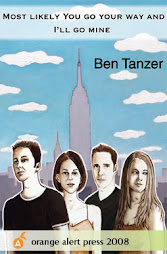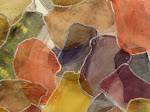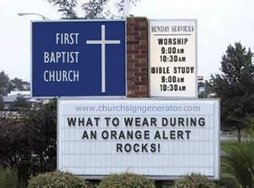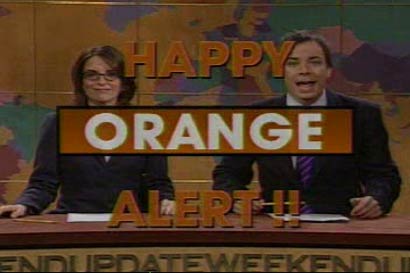
Jac Jemc
Rejection is a natural part of life, and even more so when it comes to writing and publishing. In fact, it is one of the first things you are told when you declare that you want write, “Be prepared for rejection!”. How you handle this rejection will dictate how successful you will be as a writer. The issue is that every story or poem you write is special to you, it has meaning no matter how you claim to detach yourself, and it takes effort and courage just to submit it. When the rejection final arrives even the most accomplished writer is hurt. So, what can you do?
Chicago’s Jac Jemc has taken an interesting (especially for the reader) approach to dealing with rejection. Like many writers she maintains an active blog, and has logged and numbered each rejection she has received. She also mentions where her work is published, but the blog essentially reads like cathartic tribute to rejection. If you start at the beginning of the blog, you can see that as the rejections begin to pile up the acceptances starting to come at a more regular pace. It is an interesting behind the scene look at what it is like to be a writer.
Recently, Jac was kind enough to answer a few of my questions.
Orange Alert (OA): Let's start with rejection. You seem to have taken what for some is the most challenging aspect of being a writer and turn it into a game of sorts. How did you first get the idea to blog each rejection, and what has the response been like?
Jac Jemc (JJ): Well, first I just decided I needed a blog so I could put links to the places my work was going up. I wanted a place that could kind of be the Jac-Jemc-Hub so that if people happened to like my work, they could easily find more of it. But I also knew I needed something else going on at the site so that people might actually check back from time to time. I imagined that the people who might be looking would be other writers, and what do other writers love more than hearing about their peers' failure? I think of the site as self-deprecation as self-promotion.
Also, I really like rejections. Of course, I like acceptances more, but at least rejections show that something is happening. I think sometimes, even if you're friends with other writers and you actually talk shop with each other, you can feel like you're working in a sort of void. Sending work out and hearing anything is encouraging, then. As for response to the blog, it's been good. My blog doesn't get all that many hits in a day: if it goes over 50, I'm skipping to bed that night, but most people say they like it or they think it's clever. A few people have written saying they're just starting out and they appreciate knowing how many rejections you can expect along the way.
One thing I'm always a little nervous about is the fact that I don't ask the permission of the people who are writing the rejections. I don't think I'm breaking any laws, but maybe I am by presenting a private exchange to the public? I try to have a sense of humor about the rejections and I never change what people say. I pretty much quote them verbatim so if someone doesn't like it, he's dug his own grave. Matt DiGangi of Thieves Jargon has been the only reader who responded recognizing that if he rejected me he would be quoted on the blog. And that was terrific. I felt like someone finally read the bio I sent with my submission.
OA: We recently saw the demise of an established literary site, Zygote in My Coffee, and just a week earlier Thieves Jargon announced that they would begin "winding things down". What are your thoughts on on-line journals, their validity, and lasting power?
JJ: Well, first of all I was sad to hear about Zygote in My Coffee and the idea of Thieves Jargon "winding down" breaks my heart a little. Thieves Jargon was a magazine I found in the beginning of my hunting and really led me to a lot of writers I love now, but in the case of Matt D, I believe he'll keep rejecting and rejecting and then rooting for the underdog wherever he ends up. I'm thought I heard he was in school for publishing, is that right? So the course is just altering a bit.
As for online journals in general, I adore them with all of my cold little heart. I think they've allowed a whole new form to emerge and gain validity. I might not know what I'm talking about, I haven't been doing this that long, but it seems to me that short-shorts and flash pieces are recognized as a valid form more and more, and I think that's got to have a lot to do with the attention span of a person reading online. There's a difference between buying or borrowing a journal, holding it in your hands, and browsing a website. I think you're more likely to feel committed to getting through whole, longer pieces of work if its in a solid object in front of you. Online, it's so easy to click away from a piece and never think about it again. I think it makes writers work harder because they know how easy it is for someone to wander away and I think it also gives permission to write really concentrated little narratives that can be swallowed whole even on a glowing screen with eight million distractions.
Validity? I think they deserve more credit. I think they're causing a revolution and opening up a strange, little, experimental world to more people.
Lasting Power? I feel like I can name more print journals that have gone under after one issue than online journals. The overhead is obviously lower without paper and mailing costs.
OA: You have several pieces forthcoming in print journals. Do you feel that print journals are carry more weight or are more respected then on-line journals? Which do you submit to more often?
JJ: I think my answer to this question might be a little like the way I keep thinking, "How could Obama not get elected?" Everyone I know gives online magazines their due, if not maybe preferring them to print magazines. I realize this might not be widely held literary worldview, but I feel like I'm coming from the far left of the writing world, and I think it might be the only part I care about, at least enough to actively participate in.
There are advantages and disadvantages to both print and online publication. I can't deny that I enjoy the little shelf of magazines with my work that's slowly filling up one of my shelves, but if anyone tells me they've read my work or comes to my blog, as far as I can tell, they're all arriving there from online magazines.
I'm not going to bother to do the math, but I probably submit to online mags slightly more because it's easier. If all print journals accepted electronic submissions it'd probably be equal. If I always had the money for stamps and manila envelopes, it'd probably be even more equal (hehe).The response time also tends to be quicker with online magazines which, I must say, I appreciate, and I write at a length that's good for online readers. It makes sense to me the scales should tip in that direction.
OA: You graduated from SAIC. I normally talk to artist from SAIC, and writers from Columbia. How did you decide to attend SAIC, and what was your experience like there?
JJ: I heard about SAIC's writing program at a panel discussion about writing programs in art schools at the AWP Conference my senior year of college. It sounded like the perfect fit. You don't have to declare a concentration; you can work on poetry and fiction and screenwriting and painting words on walls and embroidering words into socks – whatever you want to do. I was prepared to choose fiction over poetry if I didn't get into the Art Institute, but I really didn't want to make that kind of declaration. I knew, even if I joined a program that labeled me a fiction student, I was going to be writing poetry under the covers with a flashlight at night. The Art Institute also has a terrific advising program where you meet with an advisor every week or two and just talk one on one about your work. That undivided attention was the kicker. It was all about me for an hour-plus a week (kind of like this interview). I don't mind workshops and most people at the Art Institute are very open, but I do think politics can get in the way of helping out your fellow-classmates. It was also really wonderful to have all sorts of artist (photographers, sound, drawing students) in classes, too, because their relationship to work was different and it always brought surprising, more expansive ideas into discussions.
OA: What are your thoughts on the Chicago lit scene right now? Do you attend any of the local events or readings? Is Chicago a good place to be a writer?
JJ: Oh, boy. Chicago is where it's at. Am I wrong? I'm having such a great time. Did you not go to the Printers Ball? It was a dream. Really, there's so many people doing extraordinary things. I wish I could get out to more, but every month I go to the series Mary Hamilton and Lindsay Hunter host at the Innertown Pub: Quickies. Featherproof rocks my socks, so I get to everything they put on if I can. I try and get to as many of the Myopic readings as possible and I love the Rec Room when I can get there (I work Wednesday nights). There's a million more I want to get to or have been to once or twice. There is never a shortage of readings and happenings. Also the magazines and presses are the best out there: Make, Bailliwik, The 2nd Hand, The Packingtown Review, Switchback, Chicago Review, Fiction At Work – What more could a girl ask for?
OA: What's next for Jac Jemc?
JJ: I'm actually in a little place I call writer heaven right now – which actually means I'm on a writing residency at Ragdale up in Lake Forest. I get to read and write and sit on a verandah in a rocking chair with a quilt on my lap and look out at the prairie. I feel like Emily Dickinson, but much less refined. I have no idea what I'll do when they release me next week. Keep working, I suppose, but without the servants. I just finished a novel manuscript that I'm sending that out to see the world now finally. I've been working on it for about three years, so it feels great to get it out of my hands.
Bonus Questions:
OA: Coffee? If yes where can you find the best cup in Chicago?
JJ: Coffee! Metropolis and Dollop are my destination coffee shops – I will travel for the beans and atmosphere in these two places. However, because of proximity to my home and workplace, Pause, Chicago Coffee Company and Kopi are the places I frequent most often.
OA: What type of music do you listen to, and who are a few of your favorites?
JJ: I feel like all of my answers are a mile long, but they're all things I care about so much. I'm terrified of how these will be edited down. I will try to list only true favorites: Lou Reed, Cat Power, Leonard Cohen, Conor Oberst, Otis Redding, Joanna Newsom, Lucinda Williams, Feist, Dolly Parton, The Magnetic Fields, Joni Mitchell, Golden Shoulders, Elliott Smith, Patti Smith, Radiohead, Ryan Adams, Sarah Harmer, Talking Heads, Beatles, Jeff Buckley, Andrew Bird, Townes van Zandt, Tom Waits, The Pixies, Edith Piaf.
For more information on Jac Jemc please visit her blog.
Rejection is a natural part of life, and even more so when it comes to writing and publishing. In fact, it is one of the first things you are told when you declare that you want write, “Be prepared for rejection!”. How you handle this rejection will dictate how successful you will be as a writer. The issue is that every story or poem you write is special to you, it has meaning no matter how you claim to detach yourself, and it takes effort and courage just to submit it. When the rejection final arrives even the most accomplished writer is hurt. So, what can you do?
Chicago’s Jac Jemc has taken an interesting (especially for the reader) approach to dealing with rejection. Like many writers she maintains an active blog, and has logged and numbered each rejection she has received. She also mentions where her work is published, but the blog essentially reads like cathartic tribute to rejection. If you start at the beginning of the blog, you can see that as the rejections begin to pile up the acceptances starting to come at a more regular pace. It is an interesting behind the scene look at what it is like to be a writer.
Recently, Jac was kind enough to answer a few of my questions.
Orange Alert (OA): Let's start with rejection. You seem to have taken what for some is the most challenging aspect of being a writer and turn it into a game of sorts. How did you first get the idea to blog each rejection, and what has the response been like?
Jac Jemc (JJ): Well, first I just decided I needed a blog so I could put links to the places my work was going up. I wanted a place that could kind of be the Jac-Jemc-Hub so that if people happened to like my work, they could easily find more of it. But I also knew I needed something else going on at the site so that people might actually check back from time to time. I imagined that the people who might be looking would be other writers, and what do other writers love more than hearing about their peers' failure? I think of the site as self-deprecation as self-promotion.
Also, I really like rejections. Of course, I like acceptances more, but at least rejections show that something is happening. I think sometimes, even if you're friends with other writers and you actually talk shop with each other, you can feel like you're working in a sort of void. Sending work out and hearing anything is encouraging, then. As for response to the blog, it's been good. My blog doesn't get all that many hits in a day: if it goes over 50, I'm skipping to bed that night, but most people say they like it or they think it's clever. A few people have written saying they're just starting out and they appreciate knowing how many rejections you can expect along the way.
One thing I'm always a little nervous about is the fact that I don't ask the permission of the people who are writing the rejections. I don't think I'm breaking any laws, but maybe I am by presenting a private exchange to the public? I try to have a sense of humor about the rejections and I never change what people say. I pretty much quote them verbatim so if someone doesn't like it, he's dug his own grave. Matt DiGangi of Thieves Jargon has been the only reader who responded recognizing that if he rejected me he would be quoted on the blog. And that was terrific. I felt like someone finally read the bio I sent with my submission.
OA: We recently saw the demise of an established literary site, Zygote in My Coffee, and just a week earlier Thieves Jargon announced that they would begin "winding things down". What are your thoughts on on-line journals, their validity, and lasting power?
JJ: Well, first of all I was sad to hear about Zygote in My Coffee and the idea of Thieves Jargon "winding down" breaks my heart a little. Thieves Jargon was a magazine I found in the beginning of my hunting and really led me to a lot of writers I love now, but in the case of Matt D, I believe he'll keep rejecting and rejecting and then rooting for the underdog wherever he ends up. I'm thought I heard he was in school for publishing, is that right? So the course is just altering a bit.
As for online journals in general, I adore them with all of my cold little heart. I think they've allowed a whole new form to emerge and gain validity. I might not know what I'm talking about, I haven't been doing this that long, but it seems to me that short-shorts and flash pieces are recognized as a valid form more and more, and I think that's got to have a lot to do with the attention span of a person reading online. There's a difference between buying or borrowing a journal, holding it in your hands, and browsing a website. I think you're more likely to feel committed to getting through whole, longer pieces of work if its in a solid object in front of you. Online, it's so easy to click away from a piece and never think about it again. I think it makes writers work harder because they know how easy it is for someone to wander away and I think it also gives permission to write really concentrated little narratives that can be swallowed whole even on a glowing screen with eight million distractions.
Validity? I think they deserve more credit. I think they're causing a revolution and opening up a strange, little, experimental world to more people.
Lasting Power? I feel like I can name more print journals that have gone under after one issue than online journals. The overhead is obviously lower without paper and mailing costs.
OA: You have several pieces forthcoming in print journals. Do you feel that print journals are carry more weight or are more respected then on-line journals? Which do you submit to more often?
JJ: I think my answer to this question might be a little like the way I keep thinking, "How could Obama not get elected?" Everyone I know gives online magazines their due, if not maybe preferring them to print magazines. I realize this might not be widely held literary worldview, but I feel like I'm coming from the far left of the writing world, and I think it might be the only part I care about, at least enough to actively participate in.
There are advantages and disadvantages to both print and online publication. I can't deny that I enjoy the little shelf of magazines with my work that's slowly filling up one of my shelves, but if anyone tells me they've read my work or comes to my blog, as far as I can tell, they're all arriving there from online magazines.
I'm not going to bother to do the math, but I probably submit to online mags slightly more because it's easier. If all print journals accepted electronic submissions it'd probably be equal. If I always had the money for stamps and manila envelopes, it'd probably be even more equal (hehe).The response time also tends to be quicker with online magazines which, I must say, I appreciate, and I write at a length that's good for online readers. It makes sense to me the scales should tip in that direction.
OA: You graduated from SAIC. I normally talk to artist from SAIC, and writers from Columbia. How did you decide to attend SAIC, and what was your experience like there?
JJ: I heard about SAIC's writing program at a panel discussion about writing programs in art schools at the AWP Conference my senior year of college. It sounded like the perfect fit. You don't have to declare a concentration; you can work on poetry and fiction and screenwriting and painting words on walls and embroidering words into socks – whatever you want to do. I was prepared to choose fiction over poetry if I didn't get into the Art Institute, but I really didn't want to make that kind of declaration. I knew, even if I joined a program that labeled me a fiction student, I was going to be writing poetry under the covers with a flashlight at night. The Art Institute also has a terrific advising program where you meet with an advisor every week or two and just talk one on one about your work. That undivided attention was the kicker. It was all about me for an hour-plus a week (kind of like this interview). I don't mind workshops and most people at the Art Institute are very open, but I do think politics can get in the way of helping out your fellow-classmates. It was also really wonderful to have all sorts of artist (photographers, sound, drawing students) in classes, too, because their relationship to work was different and it always brought surprising, more expansive ideas into discussions.
OA: What are your thoughts on the Chicago lit scene right now? Do you attend any of the local events or readings? Is Chicago a good place to be a writer?
JJ: Oh, boy. Chicago is where it's at. Am I wrong? I'm having such a great time. Did you not go to the Printers Ball? It was a dream. Really, there's so many people doing extraordinary things. I wish I could get out to more, but every month I go to the series Mary Hamilton and Lindsay Hunter host at the Innertown Pub: Quickies. Featherproof rocks my socks, so I get to everything they put on if I can. I try and get to as many of the Myopic readings as possible and I love the Rec Room when I can get there (I work Wednesday nights). There's a million more I want to get to or have been to once or twice. There is never a shortage of readings and happenings. Also the magazines and presses are the best out there: Make, Bailliwik, The 2nd Hand, The Packingtown Review, Switchback, Chicago Review, Fiction At Work – What more could a girl ask for?
OA: What's next for Jac Jemc?
JJ: I'm actually in a little place I call writer heaven right now – which actually means I'm on a writing residency at Ragdale up in Lake Forest. I get to read and write and sit on a verandah in a rocking chair with a quilt on my lap and look out at the prairie. I feel like Emily Dickinson, but much less refined. I have no idea what I'll do when they release me next week. Keep working, I suppose, but without the servants. I just finished a novel manuscript that I'm sending that out to see the world now finally. I've been working on it for about three years, so it feels great to get it out of my hands.
Bonus Questions:
OA: Coffee? If yes where can you find the best cup in Chicago?
JJ: Coffee! Metropolis and Dollop are my destination coffee shops – I will travel for the beans and atmosphere in these two places. However, because of proximity to my home and workplace, Pause, Chicago Coffee Company and Kopi are the places I frequent most often.
OA: What type of music do you listen to, and who are a few of your favorites?
JJ: I feel like all of my answers are a mile long, but they're all things I care about so much. I'm terrified of how these will be edited down. I will try to list only true favorites: Lou Reed, Cat Power, Leonard Cohen, Conor Oberst, Otis Redding, Joanna Newsom, Lucinda Williams, Feist, Dolly Parton, The Magnetic Fields, Joni Mitchell, Golden Shoulders, Elliott Smith, Patti Smith, Radiohead, Ryan Adams, Sarah Harmer, Talking Heads, Beatles, Jeff Buckley, Andrew Bird, Townes van Zandt, Tom Waits, The Pixies, Edith Piaf.
For more information on Jac Jemc please visit her blog.
+by+Nick+Volkert).jpg)





















1 comment:
Font is way too friggin tiny. I've been awake a long time though. Surely a good interview... it has Jemc.
Post a Comment